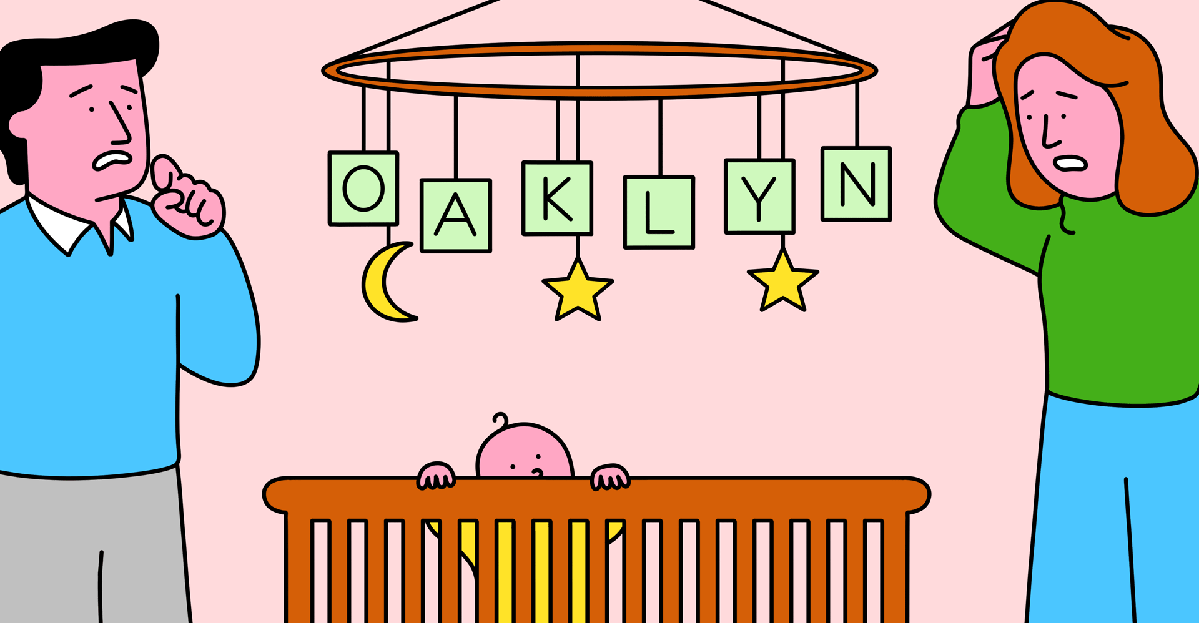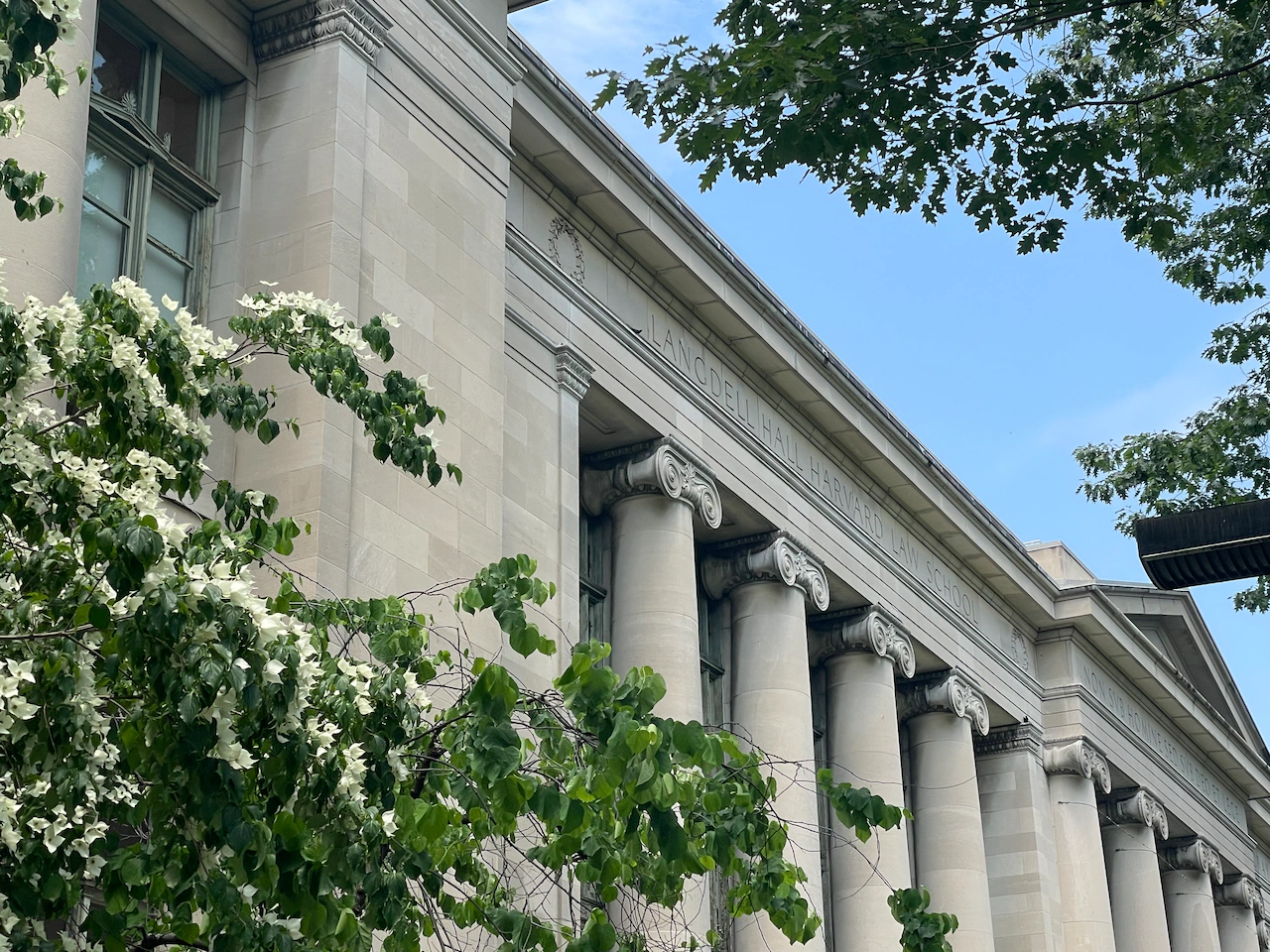
Before K-Anna Stephens posted her daughter’s name to the Facebook group “that name is a tragedeigh,” she knew that the response wasn’t going to be kind. Internet strangers aren’t usually known for being nice, and the more than 154,000 group members were gathered specifically to mock and judge “tragic names.”
Stephens herself knows how hard it is to have a distinctive name. Named after a grandmother and distant relative (Kay + Anna), she’s heard all kinds of pronunciations and remarks, and dealt with the never-ending headache of trying to submit the dash in “K-Anna” on government websites and filing systems. Still, she says, at almost 30 years old, she’s become desensitized to it.
Still, even K-Anna Stephens, with her three decades of unique name experience, didn’t know just how mean the internet could get when it came to her daughter’s name: Sadilynn.
“It’s Say-di-lynne,” Stephens tells Vox of the pronunciation. “After the first 10 or 20 comments, I turned the comments off and tried to forget about the post.”
Sadilynn, Stephens says, came about because she liked the name “Sadie” pronounced like Sadie Hawkins. A relative told her he had a dog named Sadie, which prompted her to add -lynn, combining her first choice with another name she liked. In 2016, when Sadilynn was born, Stephens says she noticed parents using -eigh and -lynn sounds in their children’s names and followed the trend.
Vox Culture
Culture reflects society. Get our best explainers on everything from money to entertainment to what everyone is talking about online.
Email (required)
By submitting your email, you agree to our Terms and Privacy Notice. This site is protected by reCAPTCHA and the Google Privacy Policy and Terms of Service apply.
When she submitted Sadilynn to the Facebook group — and it’s worth noting, there’s a similar congregation on Reddit called r/Tragedeigh, with 764,000 weekly users — she was looking for constructive criticism. What she got was a deluge of insults about her education, her sanity, her finances, her employment status, and her lack of compassion for her daughter.
“How would I put that into words? Like, Oh, my God, she’s one of those people. Was she on drugs during pregnancy? What was going through her head?” Stephens tells me. “Those comments, they’re quite literally what’s in the back of my head.”
Alternatively spelled names are a peculiar trend — inherently hard to track, since uniqueness is a key factor. But they’re undoubtedly inspiring both copycats and vitriol, often rising into the public consciousness through mockery. What’s behind the drive to create these one-in-a-billion names? Why do they garner so much abuse, so much that they can sustain multiple internet forums with six-figure memberships? What do they mean for the children who bear them, and why do they make unrelated adult strangers so, so, so very upset?
As with so many things we dislike, our ire says a lot more about us than it does about any child named Sadilynn.
Jetsyn? That’s a beautiful name for a girl!
According to baby name experts and linguists, the insertion of Ys or addition of features like a -lynne or -eigh to a more common, already-existing name are part of a trend known as “alternatively spelled” or “uniquely spelled” names, more colloquially and less professionally referred to as “Utah Mom” names.
“Utah is sort of an early warning system for things that are going to become popular,” Cleveland Evans, a professor and former president of the American Name Society, told NPR earlier this year when speaking about the rise of Oaklynne, Oaklee, Oakleigh, and its variants. Perhaps the most internet famous example of Utah Mom naming conventions is “Chalkboard Mom” aka Beehive State resident McKinli Hatch, who went viral standing beside a list of names like “Mckarty” and “Nayvie.” (She chose “Lakynn.”)
But the naming phenomenon is not exactly exclusive to or even born from Utahns.
In July, the Toronto Blue Jays honored pitcher Jeff Hoffman, who was born in New York, with a bobblehead giveaway. Accompanying Hoffman for the first pitch that night were his sons Tytan and Houstyn and his daughters Jetsyn and Lennyn.
“Technically, it’s not a new concept,” says Colleen Slagen, a baby name consultant, of the desire to purposely switch up conventional the spelling of a name and create a new one in the process. Slagen says that riffing on names goes back to the Puritans, the first Americans. The tradition goes back even further to William Shakespeare who Slagen says invented the name Jessica, the 775th most-popular girls’ name in 2025 as of this writing, according to Babycenter. Some scholars speculate that Shakespeare anglicized the name from the original Hebrew name “Jesca.”
Perhaps the way we think of Oakleigh now is how Shakespeare’s peers thought of Jessica back in 1598. Maybe we’d think of Oakleighs differently if playwrights, poets, and pilgrims were the people trial-ballooning these monikers, instead of people we see on Instagram.
“These days, this style — intentionally changing the traditional spelling of a name — is getting more popularized through social media and influencers,” Slagen says. Familiarity breeds likeness. For those who enjoy an influencers’ aesthetics and see their lives as aspirational, a baby name is just one more facet of their lives to admire and perhaps copy.
Most of the names people are selecting to jazz up already exist, and spelling them differently gives them enough of a twist without going too far. “This is a way to choose a name that looks unique, but doesn’t sound unique — like spelling the name Peyton Paytyn,” Slagen says.
The motivation to spell a name differently may go beyond the craving for quirkiness. Taylor Humphrey, a baby name consultant and expert in the immense world of things parents call their children, explains that certain sounds and features in names can connote things like femininity and masculinity. Changing the spelling of a traditional boy’s name and implementing a feminine feature can upend the binary.
The switch can offer “daughters the strength of masculine name, while simultaneously feminizing the name so as to make it clear it was a girl’s name,” Humphrey tells Vox. She explained that in the 1930s, increasingly popular names like Dolores, Frances, Florence, Beatrice, Gladys had the masculine “s” sound that appeared in historical names found in ancient Rome (e.g., Aurelius).
Humphrey expanded on this theory, noting that more popular masculine names today end with a “n” sound (e.g., Benjamin, Tristan, Hudson). If parents want a name that has that girly twist on a traditional boy name, it would mean finding a way to incorporate that “n” sound.
“I think girl moms are once again opting for that masculine strength, and included the ‘n’ ending on names that may have otherwise ended in a or y.” Emily, then, becomes Emmersyn; Oakley, Oaklyn; and Trista, Tristan, or Tristyn.
We need to talk about Bradleigh
Whether it’s Sadilynn or Oaklee or Houstyn, these names strike a nerve. Jokes, insults, unserious accusations of “child abuse,” concern about future bullying, and comparisons to the characters from George R.R. Martin’s Game of Thrones tend to follow. With some regularity, they make their way to the Tragedeigh forums of Facebook and Reddit. Why all the anger?
While these names are still too new to be studied thoroughly, the existing research on how the general public views unique names isn’t too promising. It might explain, though, why people get so mad.
Even though the names have changed, the status policing hasn’t.
Over and over, researchers have found that people tend to judge others more favorably and as more trustworthy when they have easy-to-pronounce, familiar names (famously to the disadvantage of immigrants and people of color). It seems that Americans are more likely to trust doctors and accountants with names like Pete and Laura rather than leave their taxes and health to Houstyns and Everleighs.
People like things they know, and don’t seem to trust other people’s novelty.
“English doesn’t always have consistent spelling rules,” Humphrey says. “When parents add -eigh or swap in a y, it can feel like breaking the social contract of ‘how names should be spelled.’”
Ashleigh Zosel-Harper has dealt with that disconnect her entire life. She says that about once a month, she’ll get asked why she spells her name with an -eigh instead of Ashley. It’s a question that her parents, whom she says wanted a more feminine version of the name, would be better equipped to answer.
Some of curiosity though, may be specific to millennial Zosel-Harper’s age. In the late ’80s, “Ashley” boomed in popularity, and became the more common variation. “Ashleigh” had a small rise in popularity in the early ’90s, right after the “Ashley” boom — perhaps a reflection of how unique spellings are a response to how popular an existing name becomes.
Zosel-Harper notes that the questions and the implication that “Ashley” is the more correct spelling, never really bothered her too much. “I think it made me feel like less of a stereotypical Ashley,” Zosel-Harper tells me. “I didn’t fit that stereotype super well, so it made me feel more independent of my name.”
But she also says that she never really “loved” the name in either spelling (the extra letters, she says, are “kind of fussy”). There were so many Ashleys growing up, that it didn’t feel unique. It was nothing compared to her high school classmate, Bradleigh.
“Bradley but spelled B-R-A-D-L-E-I-G-H? It totally blew my mind,” Zosel-Harper says.
Why some people can’t stand to see an Oakleigh winning
But sometimes the backlash is more than just playful curiosity.
Humphrey, the baby name consultant, explains that a part of the backlash to these names is rooted in classism. Humphrey cited an argument from The Cut in 2022 when the publication explored the backlash to names like Loyal, Ozzy, Emberlyn, and theorized it was due to those names projecting an idea of being poor or uneducated, or someone poor and uneducated enough not realize that a name could convey all of those things.
Even though the names have changed, the status policing hasn’t.
Recently, there’s been a growing, vocal obsession of “old money” and “quiet luxury” aesthetics. It’s the idea of elegant consumption and behavior that only people with real wealth and class understand and access. This refined consumerism manifests itself in accessories, clothes, cars, hair color, schools, home goods and, even names. (Names considered “old money” like Amelia, Charlotte, Olivia, and Emma are all in the top 10 girls names of 2024, while Theodore, James, Henry, and William are in the top 10 boys names).
The throughline between these seemingly vast and disparate items and identifiers is understatement and tradition. Only people who understand quiet luxury will be able to spot quiet luxury, and anyone who can’t is in the out-group.
Names like Tytan, Oakleigh, Jetsynn, Lennyn, are outliers. They’re flashy, attention-grabbing, and meant to be noticed. They threaten structure and usurp tradition. Parents like Stephens are well aware of how these names are supposed to be spelled, and still don’t follow.
“Sarah, Hannah, Emily — they’re beautiful names, but I don’t know, they’re just not for me,” Stephens says. Despite the internet furor, Stephens says hasn’t received much pushback to Sadilynn’s name in real life except for when she asks teachers and faculty not to shorten it to Sadie.
“I had no intention of trying to make Sadilynn stand out,” Stephens tells me. The name “just brought me a lot of happiness.”
Why a future of Lakynns and Houstyns is unlikely
Humphrey pointed out to me that names were each given to less than 25 girls in 2024, like Tristyn (24), Lakynn (16), and Houstyn (5). Oaklynn, perhaps one of the most popular of these “Utah Mom” names, was given to 1,898 babies. Considering there were 3.6 million births in the US, the notion of these names becoming extremely popular feels a bit exaggerated.
It might be more helpful to look at the rise of these names (and the ensuing backlash) as part of a larger trend of Americans grappling with identity and tradition. Choosing a unique spelling for a name is a way for parents to signal individuality. They’re also a way for parents to shift the way we think about gender (i.e., giving girls names that sound like boys’ names but spelled with feminine features). Those trends feel more everlasting than the names people choose.
If the idea of more -y, -leigh, and -lynn names troubles you that greatly, there may be light at the end of the tunnel.
Every year, the most popular names are actually getting less popular.
“Here’s the twist: Every year, the most popular names are actually getting less popular,” Humphrey tells me.
Essentially, there are less people naming their babies the most popular names. Today, the most common names don’t dominate the way Michaels, Jessicas, and Sarahs did decades ago. Americans still have their favorites like Liam and Olivia — the top names in 2024 — but they aren’t as saturated.
“Parents are naturally spreading out across a wider pool of options, which means the need for creative spellings may eventually solve itself,” Humphrey says.
Or maybe — maybeigh — it won’t.



